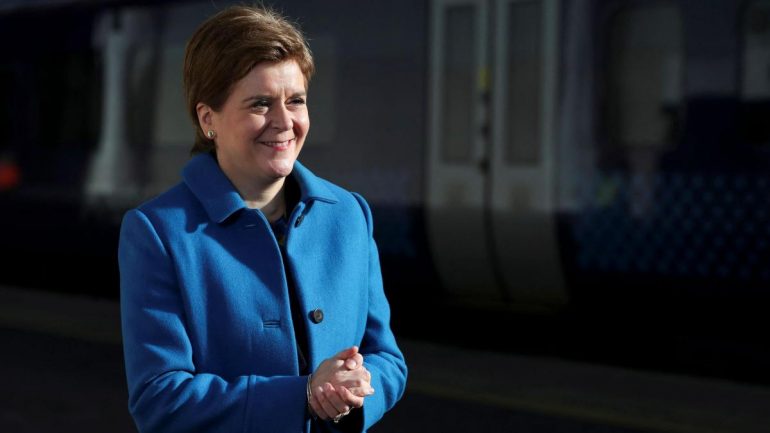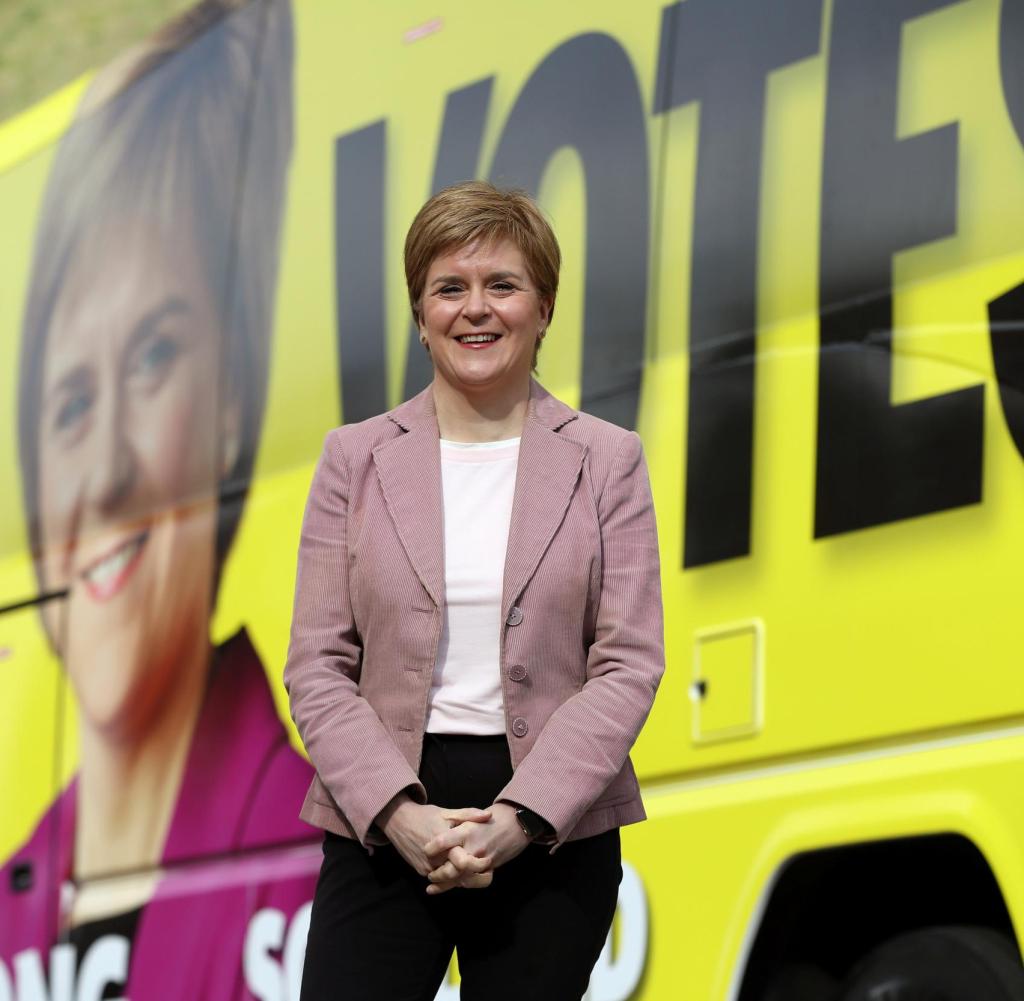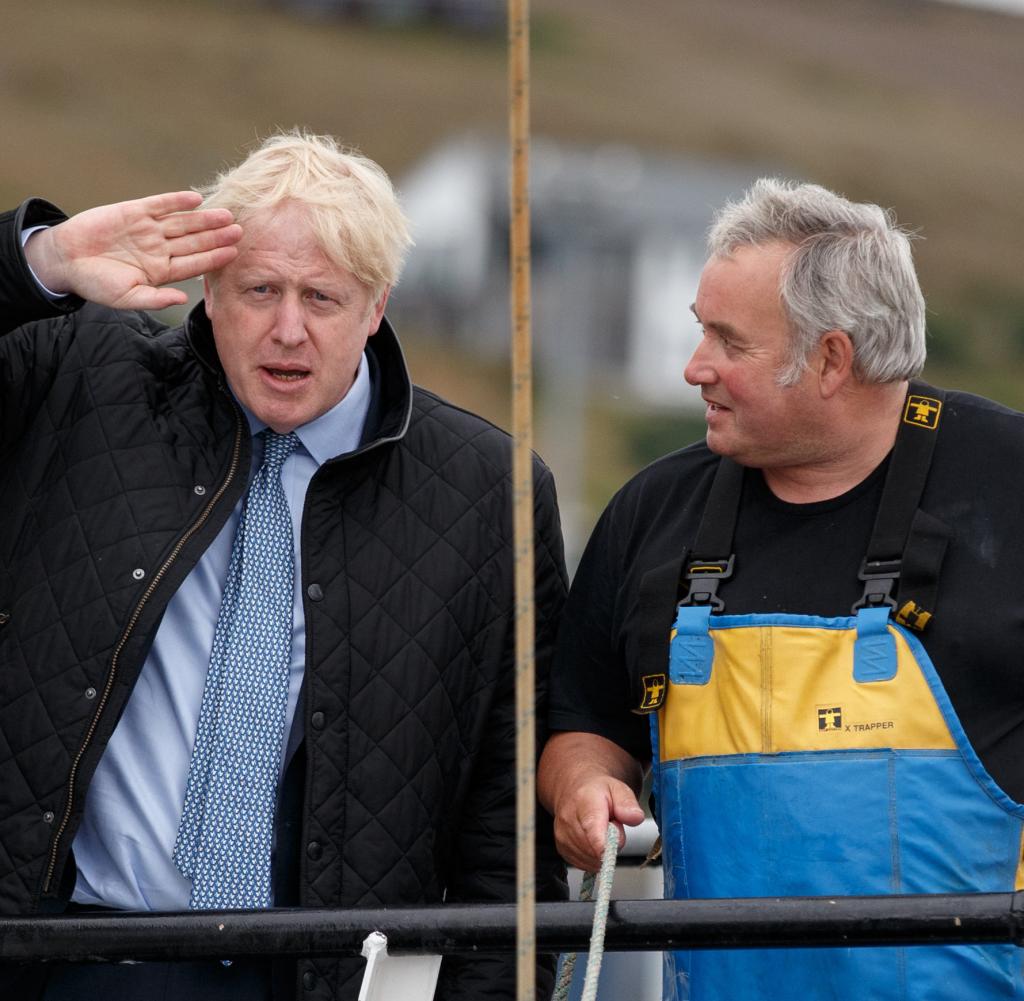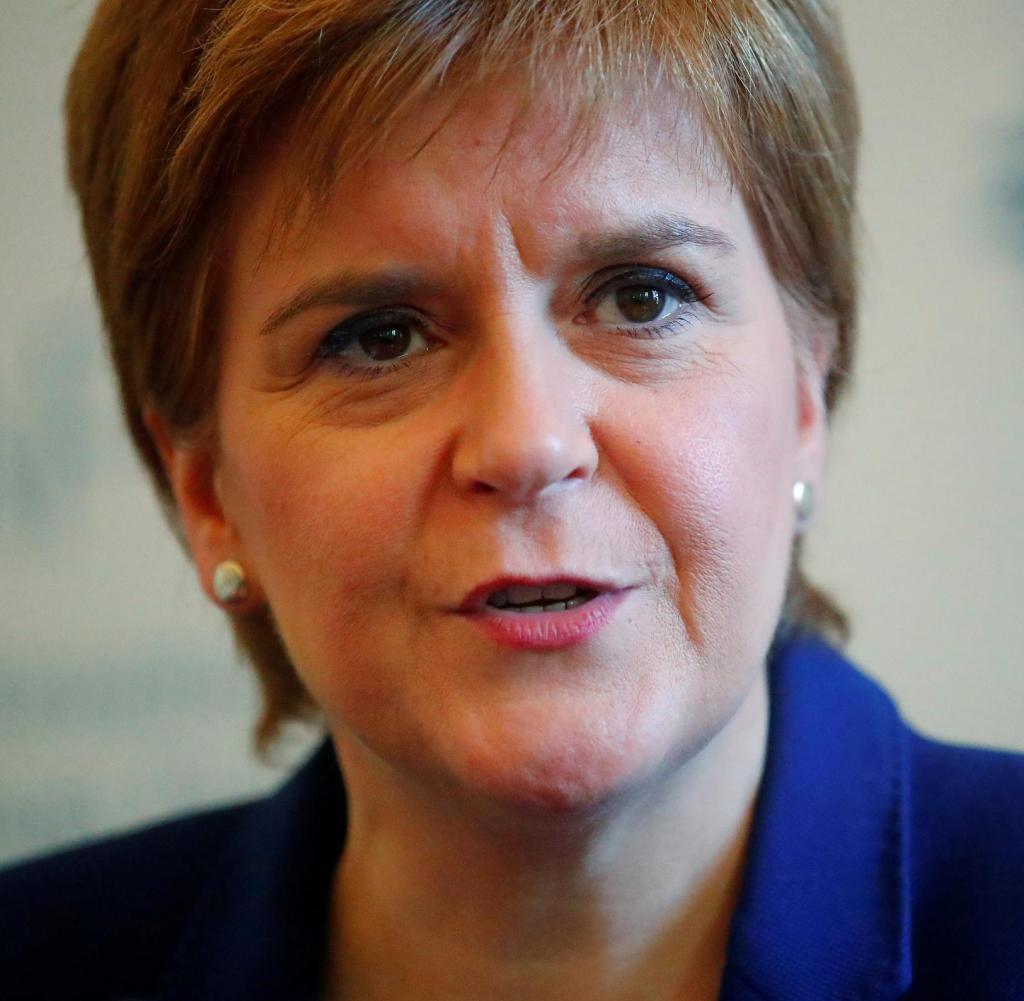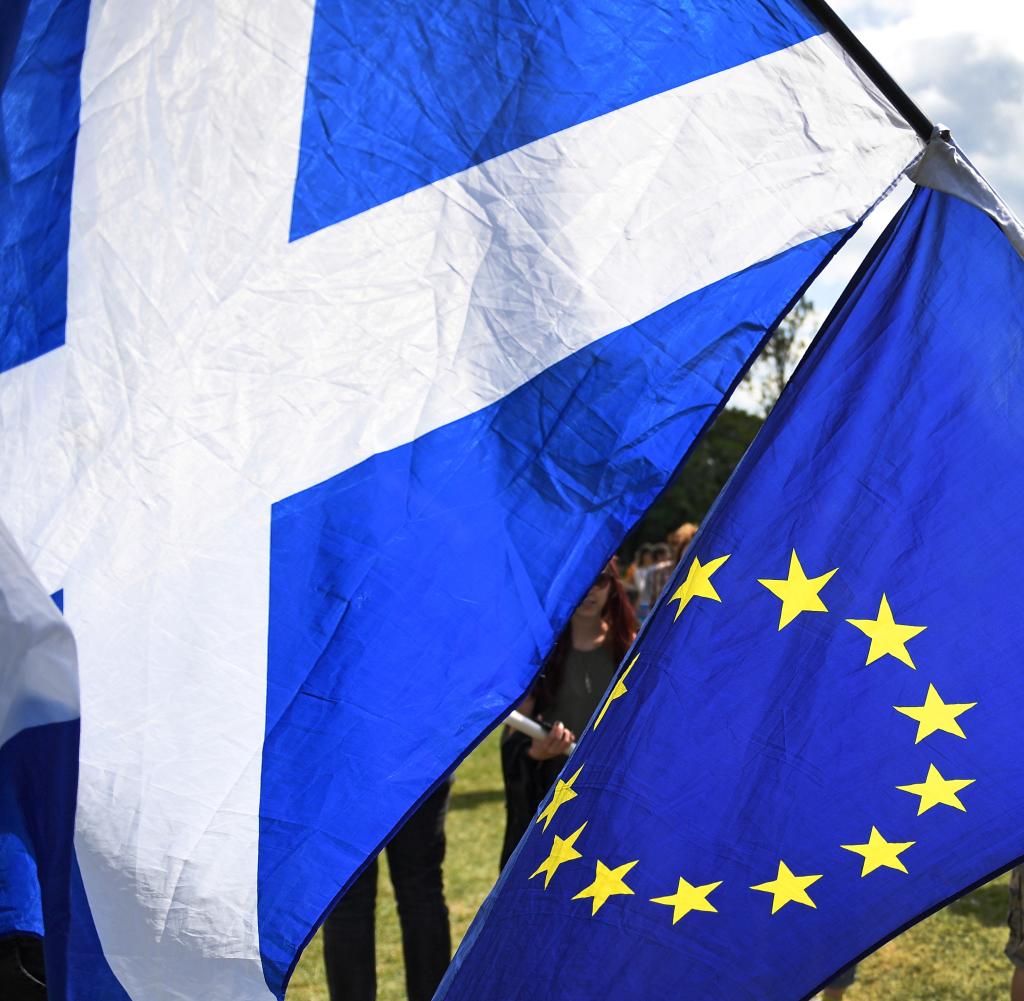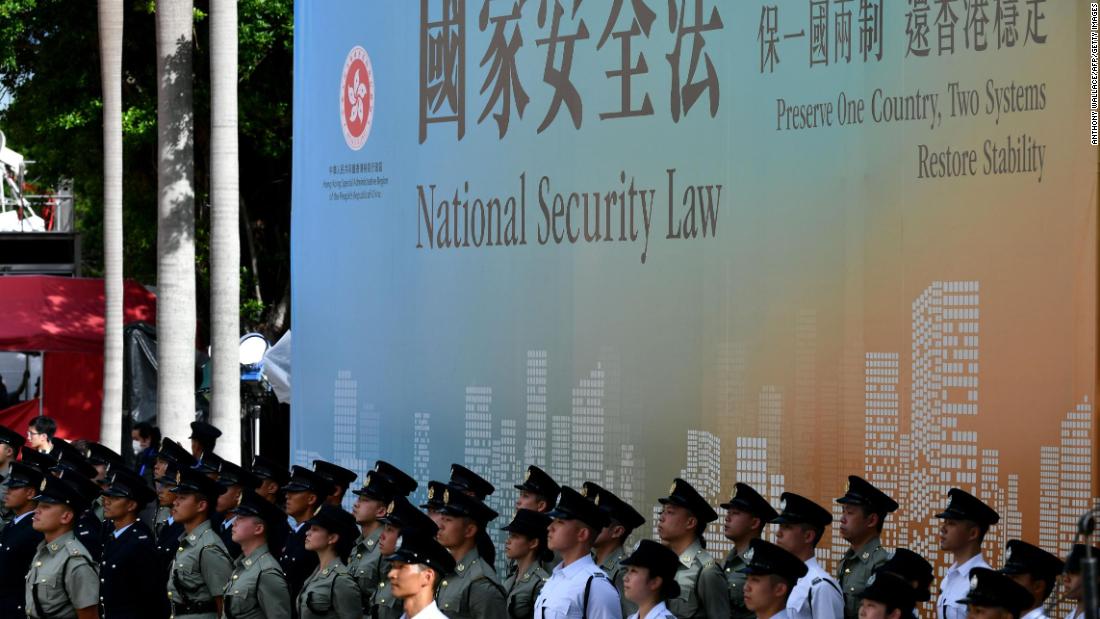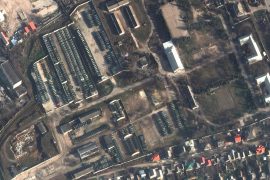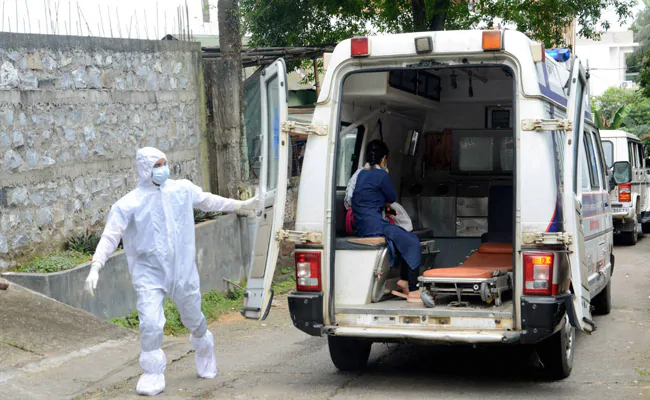ab On Sunday 120 heads of state and government will meet in Glasgow, Scotland. US President Joe Biden, Indian Prime Minister Narendra Modi and Acting Chancellor Angela Merkel will be present there. Scotland’s Prime Minister Nicola Sturgeon is not at the table. More than 30,000 guests from around the world use Sturgeon’s hometown as a venue for talks for two weeks.
But Boris Johnson is the official host. His relationship with a Scottish woman is anything but good, and the British prime minister refuses to hold another independence referendum. “We have to get a good result at COP26, small-scale controversies shouldn’t stop us”, Sturgeon replied in an interview with WELT and other European media, when asked if he was in such a situation in his own right. How do you feel about your non-position at the important event? Country.
Instead, she wants to talk about her climate progress. “We’re halfway there when Scotland reaches the net zero target by 2045. Scotland is the world leader.” The head of the Scottish National Party (SNP) points out that almost one hundred percent of Scottish energy supply already comes from renewable sources.
Glasgow “has the biggest, if not the last, chance for the world to avert climate catastrophe. Anyone who just talks and doesn’t deliver in Glasgow will be caught quickly,” says Sturgeon. Only for India and China, who oppose a commitment to a net zero target for 2050 and do not want to compromise when it comes to reducing coal production.
The “net zero” strategy presented by British Johnson last week doesn’t match up in London’s new budget at the same time. “Great Britain is cutting taxes on short-haul flights, has insufficient funding for an environmentally friendly heating system. In addition, the prime minister wants to open a new coal mine in Cumbria, England and oil fields in the North Sea ,” explains the First Minister.
The British North is rich in wind and hydropower, but new technologies such as hydrogen production and tidal power plants are also being expanded. At the same time, investing in renewable energy is a challenge because the country has been well off oil and gas production for decades – and made far less economic than the renewables sector. “We have to approach the transition of this sector fairly. There are thousands of jobs dependent on it, which we have to convert into the jobs of the future. At the same time, we cannot produce oil until the last minute, the transition Must be fast,” says Sturgeon.
The Scottish woman’s hands are often tied in this regard. “If we were independent, for example, we could determine the license of the oil fields ourselves,” she says, referring to the North Atlantic “cambo” oil deposits near the Shetland Islands. Johnson is considering granting it a blessing soon, and Sturgeon’s government, which has included the Greens since May, may have conducted a legal investigation into it first.
Two-thirds of Scots voted against Brexit in 2016, and its implementation in early 2021 with the end of the pandemic has yielded clear results. The dispute between France and the British over the rights of fishing in the English Channel is increasing at this time. A Scottish fishing boat has been arrested. “I urge all parties to sit at the table and find a solution that is compliant with the contracts,” Sturgeon said.
In general, Scotland was affected by several Brexit consequences. “There is no shortage of food, but some products are missing from our supermarkets. The supply chain is disrupted. Our health system is short of people because it is far more difficult to find workers because of the EU’s end of free movement.”
Sturgeon sticks to her plans for another referendum on an independent Scotland. “Preferably in the first part of the current legislature, so before the end of 2023.” In May, the SNP politician was re-elected, but his party was not losing a seat for an absolute majority. So now there are two green ministers in the cabinet.
But London understands that only the British prime minister can allow a referendum to be held – which Boris Johnson does not want to do. Sturgeon, however, questions its constitutional status. “I am Scotland’s first democratically elected minister, accountable to the Scottish Parliament.”
If this clears the legislative way for the referendum, Sturgeon feels obliged to carry it out. “Boris Johnson then has to make a decision: either he accepts the democratic decision of Scotland, or he has to challenge it in court. And that legal test never happened.”
However, in the short term, Johnson is building a strained relationship with Brussels, something more so when it comes to Brexit. London wants to challenge the Northern Ireland Protocol agreed in 2019, a pillar of the entire Brexit treaty. “I hope that these questions can be resolved. The EU Commission has made substantial suggestions to improve practical problems in Northern Ireland. However, I fear the UK government may be doing too much to create tensions on the domestic base.” It is curious. However, such an approach would seriously damage Britain’s international reputation for a long time to come. As a country that cannot be trusted because it does not comply with the contracts it has signed “

Introvert. Proud beer specialist. Coffee geek. Typical thinker. Pop culture trailblazer. Music practitioner. Explorer.

